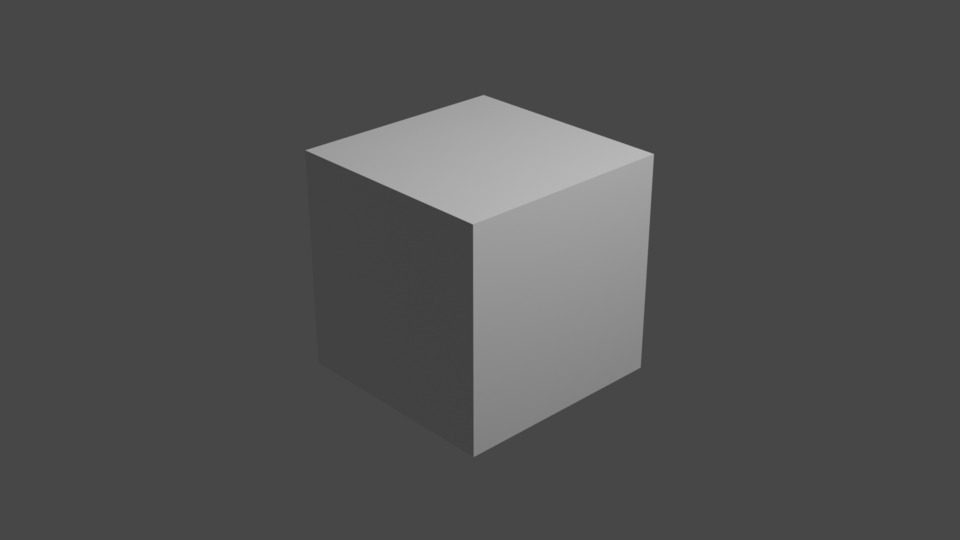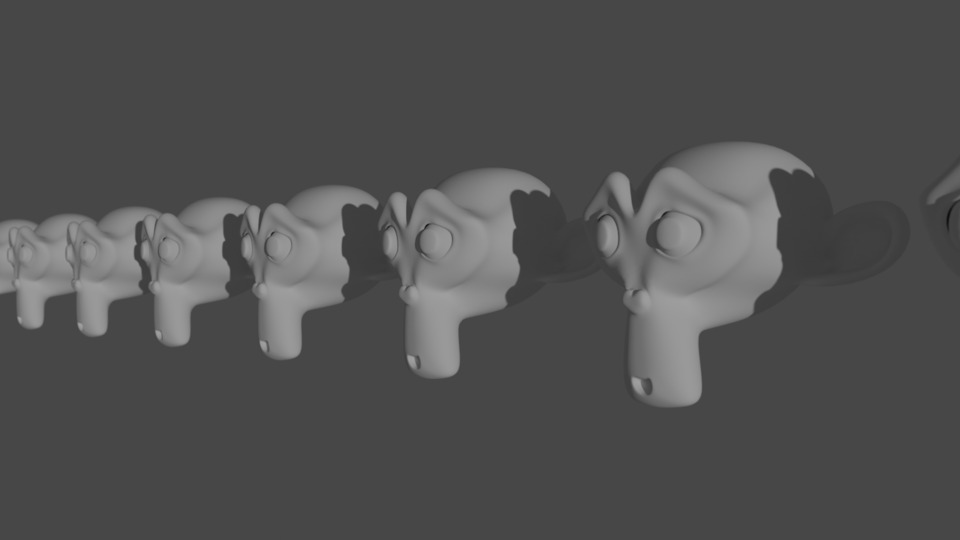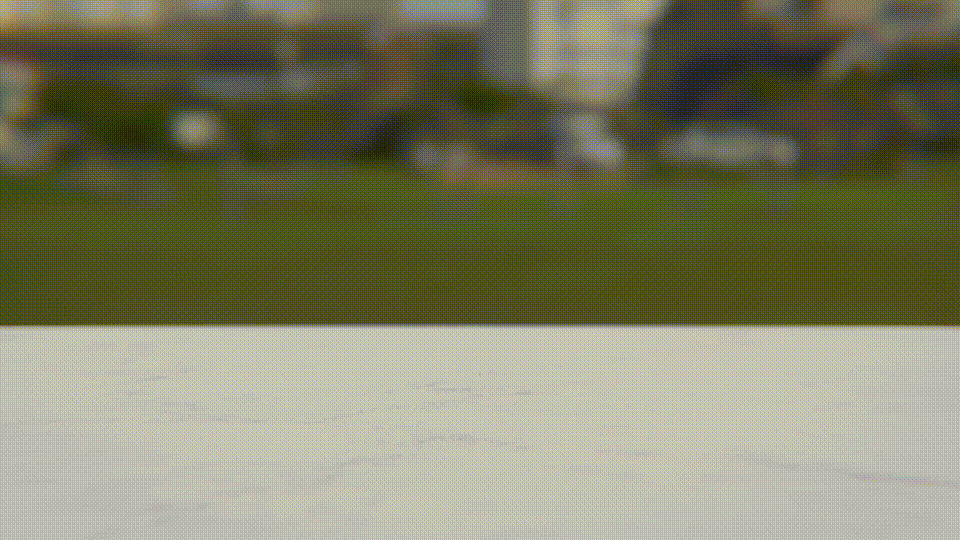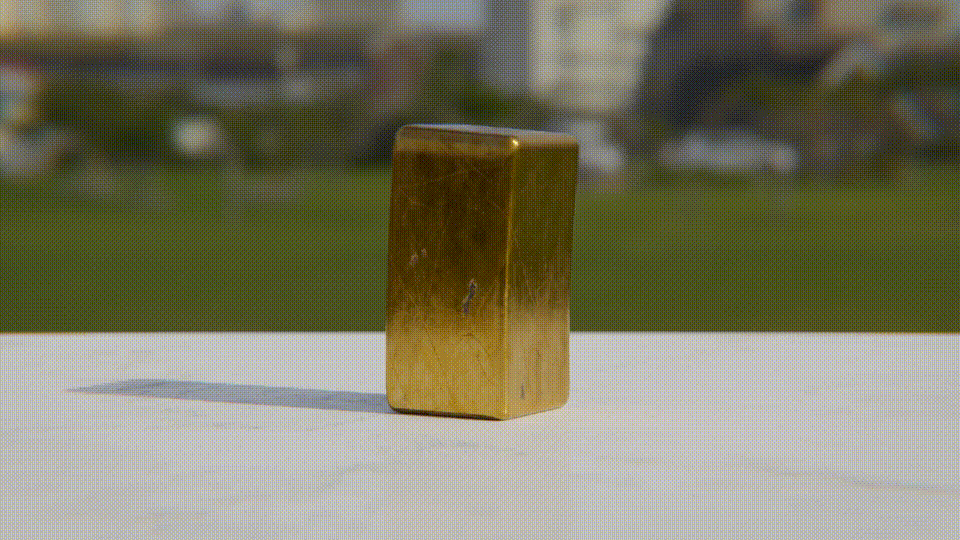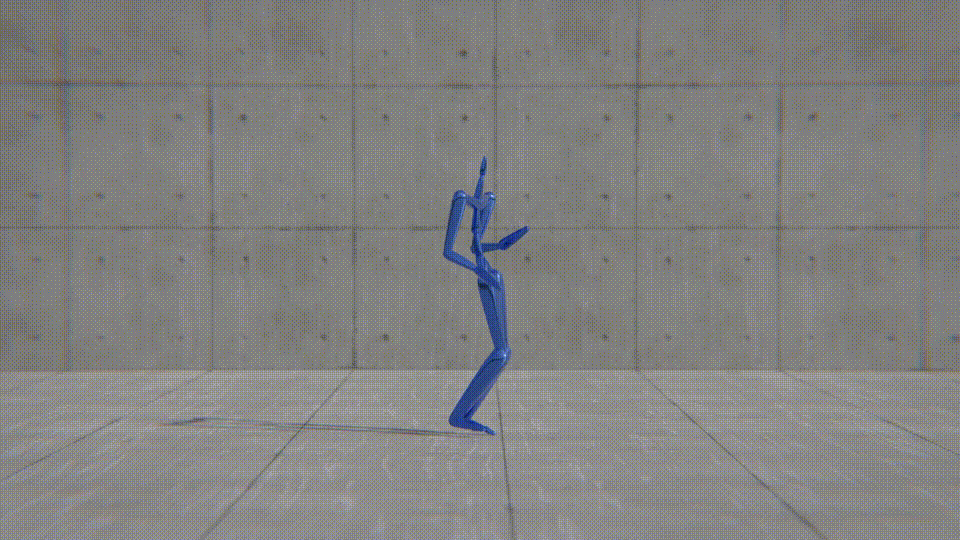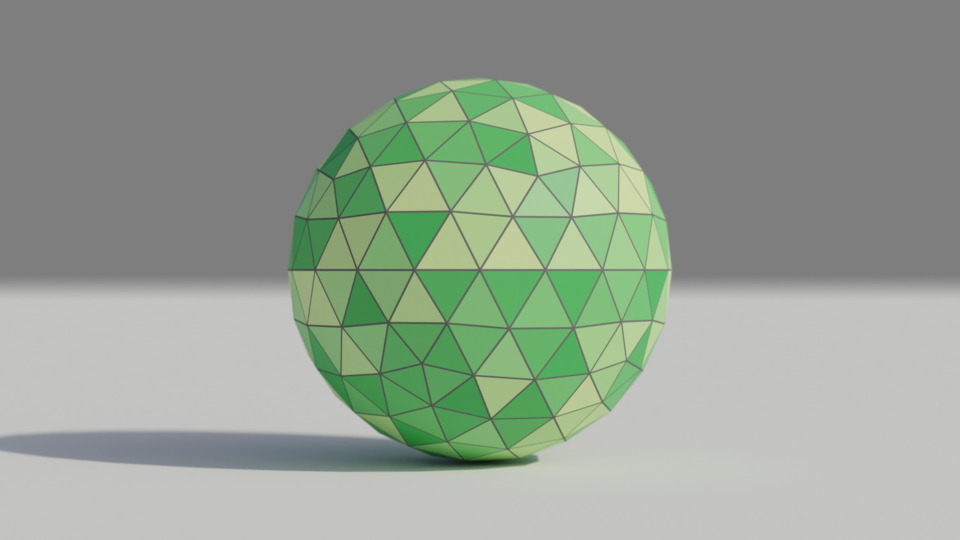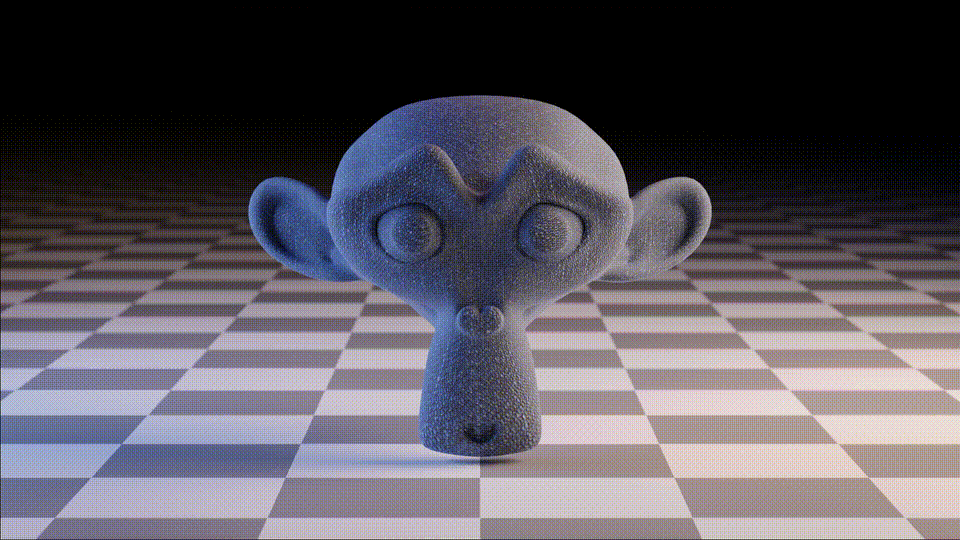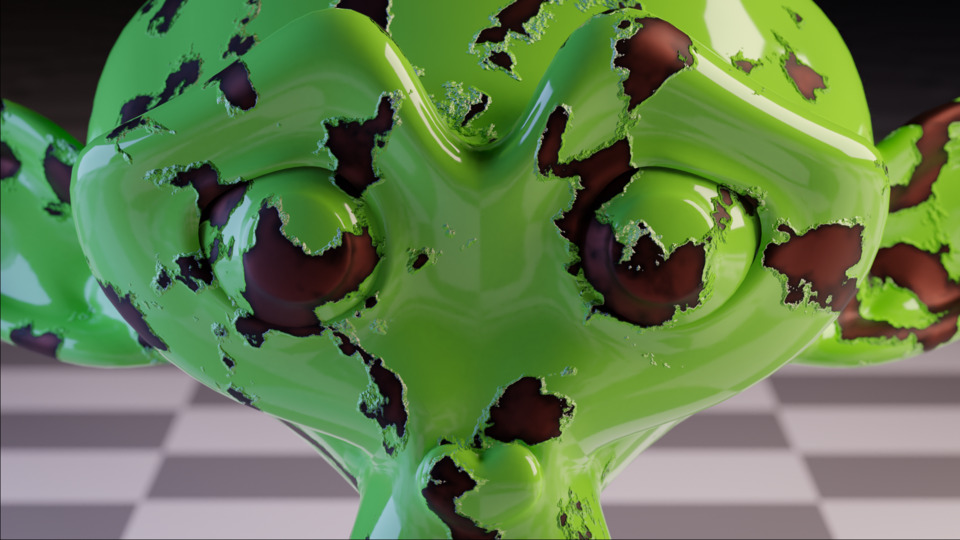Python scripts for generating scenes and rendering images using Blender from command-line interface.
- Able to run without display (thus, the renderer should be Cycles instead of EEVEE)
- Support the latest Blender release (currently 2.83)
- Material to learn how to use Blender Python APIs.
- Visualization of 3D data with fancy rendering quality.
- Generation of synthetic training datasets for machine learning-based computer vision.
- Cycles renderer
- Directional light
- Algorithmic object placement
- Subdivision surfaces
TRACK_TOconstraint to achieve camera's look-at behavior- Depth of field
- Smooth shading
- Node-tree
- Image-based lighting using an HDR image
- Principled BSDF
- Denoising
- Empty object as a target
- Composition nodes
- Node group
- Split tone effect
- Checker board texture
- Image texture
- Keyframing
- Motion blur
- Skeletal animation
- Skinning
- Mesh creation from Python data
- BVH data import
- Texture tiling
- Camera following
- Wireframe
- Vertex colors
- Transparent background
- Cloth modifier
- Collision modifier
- Area light
- MatCap (a.k.a. Lit Sphere)
- Image filtering (e.g., sharpen)
- Simple RGB background
- Node frame
- Noise texture
Scripts in this repository use the Blender Python API, which is licensed under GNU General Public License (GPL). Thus, these scripts are considered as derivative works of a GPL-licensed work, so they are also licensed under GPL following the copyleft rule.


